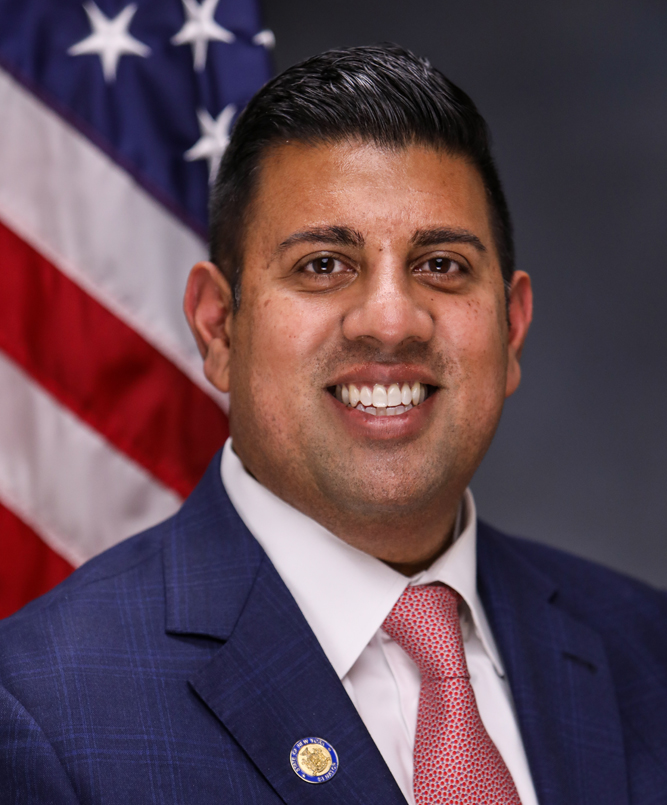S T A T E O F N E W Y O R K
________________________________________________________________________
5923--A
2021-2022 Regular Sessions
I N S E N A T E
March 23, 2021
___________
Introduced by Sen. THOMAS -- read twice and ordered printed, and when
printed to be committed to the Committee on Judiciary -- committee
discharged, bill amended, ordered reprinted as amended and recommitted
to said committee
AN ACT to amend the civil practice law and rules, the banking law and
the debtor and creditor law, in relation to exempting COVID-19 stimu-
lus relief for individuals and families with children from money judg-
ments
THE PEOPLE OF THE STATE OF NEW YORK, REPRESENTED IN SENATE AND ASSEM-
BLY, DO ENACT AS FOLLOWS:
Section 1. Paragraph 2 of subdivision (l) of section 5205 of the civil
practice law and rules, as amended by chapter 24 of the laws of 2009, is
amended and a new subdivision (p) is added to read as follows:
2. For purposes of this article, "statutorily exempt payments" means
any personal property exempt from application to the satisfaction of a
money judgment under any provision of state or federal law. Such term
shall include, but not be limited to, payments from any of the following
sources: social security, including retirement, survivors' and disabili-
ty benefits, supplemental security income or child support payments;
veterans administration benefits; public assistance; workers' compen-
sation; unemployment insurance; public or private pensions; railroad
retirement; [and] black lung benefits; AND EMERGENCY RELIEF FUNDS.
(P) EXEMPTION FOR EMERGENCY RELIEF FUNDS. ANY PAYMENTS TO INDIVIDUALS,
INCLUDING TAX REFUNDS, RECOVERY REBATES, REFUNDABLE TAX CREDITS, AND ANY
ADVANCES OF ANY TAX CREDITS, UNDER THE FEDERAL FAMILIES FIRST CORONAVI-
RUS RESPONSE ACT (FFCRA), CORONAVIRUS AID, RELIEF, AND ECONOMIC SECURITY
ACT OF 2020 (CARES ACT), CONSOLIDATED APPROPRIATIONS ACT OF 2021, AND
AMERICAN RESCUE PLAN ACT OF 2021 (ARPA) ARE EXEMPT FROM APPLICATION TO
THE SATISFACTION OF A MONEY JUDGMENT. THIS EXEMPTION SHALL NOT APPLY
(I) IF THE DEBT ENFORCED IS FOR CHILD SUPPORT, SPOUSAL SUPPORT, MAINTE-
NANCE, ALIMONY, A DISTRIBUTIVE AWARD IN A MATRIMONIAL ACTION, OR RESTI-
EXPLANATION--Matter in ITALICS (underscored) is new; matter in brackets
[ ] is old law to be omitted.
LBD10569-04-1
S. 5923--A 2
TUTION IN A FAMILY OFFENSE PROCEEDING, OR (II) TO THAT PORTION OF ANY
MONEY JUDGMENT AWARDED ON A CLAIM THAT THE EMERGENCY RELIEF FUNDS REFER-
ENCED HEREIN ARE THE RIGHTFUL PROPERTY OF THE JUDGMENT CREDITOR.
§ 2. Subdivision (e) of section 5222 of the civil practice law and
rules, as amended by chapter 575 of the laws of 2008, is amended to read
as follows:
(e) Content of notice. The notice required by subdivision (d) of this
section shall be in substantially the following form and may be included
in the restraining notice:
NOTICE TO JUDGMENT DEBTOR OR OBLIGOR
Money or property belonging to you may have been taken or held in
order to satisfy a judgment or order which has been entered against you.
Read this carefully.
YOU MAY BE ABLE TO GET YOUR MONEY BACK
State and federal laws prevent certain money or property from being
taken to satisfy judgments or orders. Such money or property is said to
be "exempt". The following is a partial list of money which may be
exempt:
1. Supplemental security income, (SSI);
2. Social security;
3. Public assistance (welfare);
4. Spousal support, maintenance (alimony) or child support;
5. Unemployment benefits;
6. Disability benefits;
7. Workers' compensation benefits;
8. Public or private pensions;
9. Veterans benefits;
10. Ninety percent of your wages or salary earned in the last sixty
days;
11. Twenty-five hundred dollars of any bank account containing statu-
torily exempt payments that were deposited electronically or by direct
deposit within the last forty-five days, including, but not limited to,
your social security, supplemental security income, veterans benefits,
public assistance, workers' compensation, unemployment insurance, public
or private pensions, railroad retirement benefits, black lung benefits,
or child support payments;
12. Railroad retirement; [and]
13. Black lung benefits; AND
14. COVID-19 STIMULUS RELIEF FOR INDIVIDUALS AND FAMILIES WITH CHIL-
DREN.
If you think that any of your money that has been taken or held is
exempt, you must act promptly because the money may be applied to the
judgment or order. If you claim that any of your money that has been
taken or held is exempt, you may contact the person sending this notice.
Also, YOU MAY CONSULT AN ATTORNEY, INCLUDING ANY FREE LEGAL SERVICES
ORGANIZATION IF YOU QUALIFY. You can also go to court without an attor-
ney to get your money back. Bring this notice with you when you go. You
are allowed to try to prove to a judge that your money is exempt from
collection under New York civil practice law and rules, sections fifty-
two hundred twenty-two-a, fifty-two hundred thirty-nine and fifty-two
hundred forty. If you do not have a lawyer, the clerk of the court may
give you forms to help you prove your account contains exempt money that
the creditor cannot collect. The law (New York civil practice law and
rules, article four and sections fifty-two hundred thirty-nine and
fifty-two hundred forty) provides a procedure for determination of a
claim to an exemption.
S. 5923--A 3
§ 3. Paragraph 4 of subdivision (b) of section 5222-a of the civil
practice law and rules, as added by chapter 575 of the laws of 2008, is
amended to read as follows:
4. Content of exemption notice and exemption claim form. a. The
exemption notice shall be in the following form:
"EXEMPTION NOTICE
as required by New York Law
YOUR BANK ACCOUNT IS RESTRAINED OR "FROZEN"
The attached Restraining Notice or notice of Levy by Execution has
been issued against your bank account. You are receiving this notice
because a creditor has obtained a money judgment against you, and one or
more of your bank accounts has been restrained to pay the judgment. A
money judgment is a court's decision that you owe money to a creditor.
You should be aware that FUTURE DEPOSITS into your account(s) might also
be restrained if you do not respond to this notice.
You may be able to "vacate" (remove) the judgment. If the judgment is
vacated, your bank account will be released. Consult an attorney
(including free legal services) or visit the court clerk for more infor-
mation about how to do this.
Under state and federal law, certain types of funds cannot be taken
from your bank account to pay a judgment. Such money is said to be
"exempt."
DOES YOUR BANK ACCOUNT CONTAIN ANY OF THE FOLLOWING TYPES OF FUNDS?
1. Social security;
2. Social security disability (SSD);
3. Supplemental security income (SSI);
4. Public assistance (welfare);
5. Income earned while receiving SSI or public assistance;
6. Veterans benefits;
7. Unemployment insurance;
8. Payments from pensions and retirement accounts;
9. Disability benefits;
10. Income earned in the last 60 days (90% of which is exempt);
11. Workers' compensation benefits;
12. Child support;
13. Spousal support or maintenance (alimony);
14. Railroad retirement; [and/or]
15. Black lung benefits; AND/OR
16. COVID-19 STIMULUS RELIEF FOR INDIVIDUALS AND FAMILIES WITH
CHILDREN.
If YES, you can claim that your money is exempt and cannot be taken.
To make the claim, you must
(a) complete the EXEMPTION CLAIM FORM attached;
(b) deliver or mail the form to the bank with the restrained or
"frozen" account; and
(c) deliver or mail the form to the creditor or its attorney at the
address listed on the form.
You must send the forms within 20 DAYS of the postmarked date on the
envelope holding this notice. You may be able to get your account
released faster if you send to the creditor or its attorney written
proof that your money is exempt. Proof can include an award letter from
the government, an annual statement from your pension, pay stubs, copies
of checks, bank records showing the last two months of account activity,
or other papers showing that the money in your bank account is exempt.
S. 5923--A 4
If you send the creditor's attorney proof that the money in your account
is exempt, the attorney must release that money within seven days. You
do not need an attorney to make an exemption claim using the form."
b. The exemption claim form shall be in the following form:
NAME OF COURT, NAME OF COUNTY
-------------------------------------x
PLAINTIFF/PETITIONER/CLAIMANT INDEX NO.
V.
DEFENDANT/RESPONDENT EXEMPTION CLAIM FORM
-------------------------------------x
NAME AND ADDRESS OF JUDGMENT NAME AND ADDRESS OF FINANCIAL
CREDITOR OR ATTORNEY INSTITUTION
(To be completed by judgment (To be completed by judgment
creditor or attorney) creditor or attorney)
ADDRESS ADDRESS
A_____________________ B______________________
____________________ _____________________
Directions: To claim that some or all of the funds in your account are
exempt, complete both copies of this form, and make one copy for your-
self. Mail or deliver one form to ADDRESS A and one form to ADDRESS B
within twenty days of the date on the envelope holding this notice.
**If you have any documents, such as an award letter, an annual state-
ment from your pension, paystubs, copies of checks or bank records show-
ing the last two months of account activity, include copies of the docu-
ments with this form. Your account may be released more quickly.
_________________________________________________________________________
I state that my account contains the following type(s) of funds (check
all that apply):
____Social security
____Social security disability (SSD)
____Supplemental security income (SSI)
____Public assistance
____Wages while receiving SSI or public assistance
____Veterans benefits
____Unemployment insurance
____Payments from pensions and retirement accounts
____Income earned in the last 60 days (90% of which is exempt)
____Child support
____Spousal support or maintenance (alimony)
____Workers' compensation
____Railroad retirement or black lung benefits
_____COVID-19 STIMULUS RELIEF FOR INDIVIDUALS AND FAMILIES WITH CHILDREN
____Other (describe exemption):_________________________________
I request that any correspondence to me regarding my claim be sent to
the following address:
_____________________________________________________________________
S. 5923--A 5
(FILL IN YOUR COMPLETE ADDRESS)
I certify under penalty of perjury that the statement above is true to
the best of my knowledge and belief.
_________________________________________________________________________
DATE SIGNATURE OF JUDGMENT DEBTOR
§ 4. Subdivision 1 of section 9-g of the banking law, as added by
chapter 10 of the laws of 1980, is amended to read as follows:
1. (A) No banking institution shall assert, claim or exercise any
right of set off against any deposit account into which social security
or supplemental security income payments are deposited pursuant to an
agreement with such banking institution which provides that such
payments be deposited directly into such deposit account without presen-
tation to the depositor at the time of deposit.
(B) NO BANKING INSTITUTION SHALL ASSERT, CLAIM OR EXERCISE ANY RIGHT
OF SET OFF AGAINST ANY PAYMENTS REFERRED TO IN SUBDIVISION (P) OF
SECTION FIFTY-TWO HUNDRED FIVE OF THE CIVIL PRACTICE LAW AND RULES.
§ 5. Section 3 of the debtor and creditor law is amended by adding a
new fifth undesignated paragraph to read as follows:
THE RIGHT OF ANY PERSON TO PAYMENTS, INCLUDING TAX REFUNDS, RECOVERY
REBATES, REFUNDABLE TAX CREDITS, AND ANY ADVANCES OF ANY TAX CREDITS,
UNDER THE FEDERAL FAMILIES FIRST CORONAVIRUS RESPONSE ACT (FFCRA), CORO-
NAVIRUS AID, RELIEF, AND ECONOMIC SECURITY ACT OF 2020 (CARES ACT),
CONSOLIDATED APPROPRIATIONS ACT OF 2021, AND AMERICAN RESCUE PLAN ACT OF
2021 (ARPA) SHALL NOT BE TRANSFERABLE OR ASSIGNABLE, AT LAW OR IN EQUI-
TY.
§ 6. This act shall take effect immediately.














